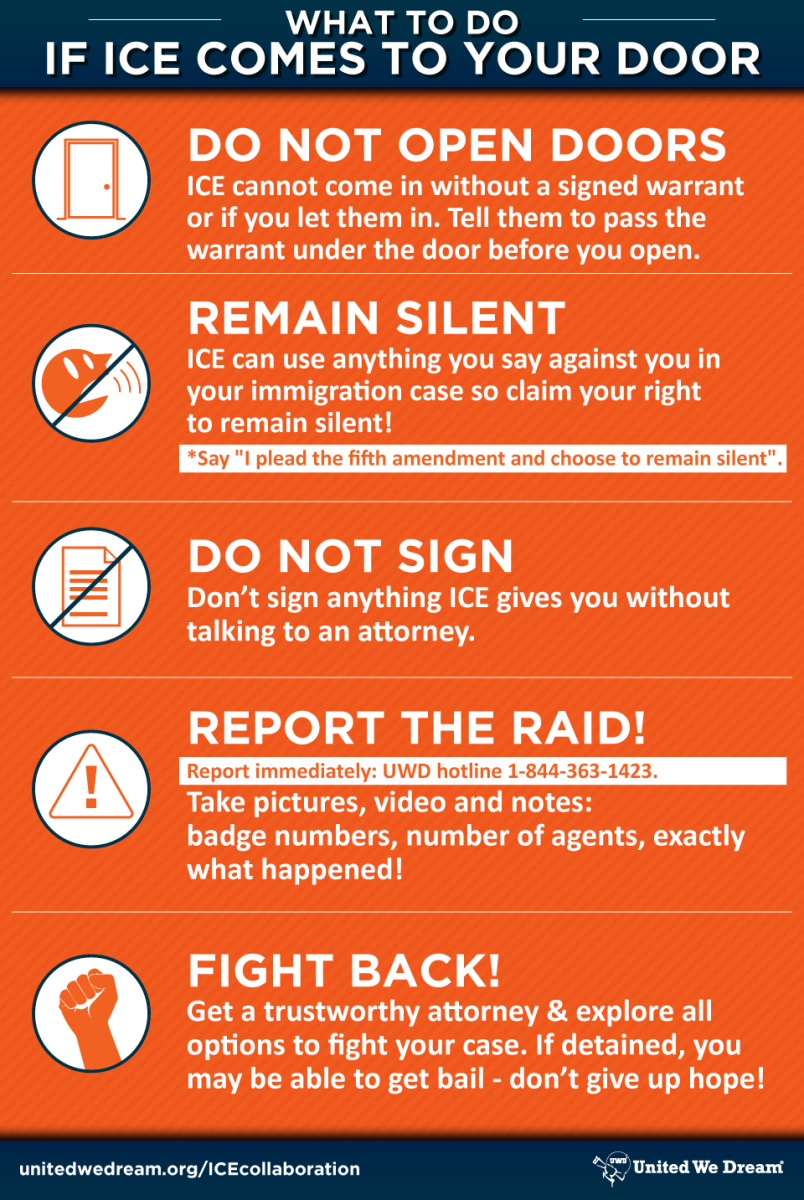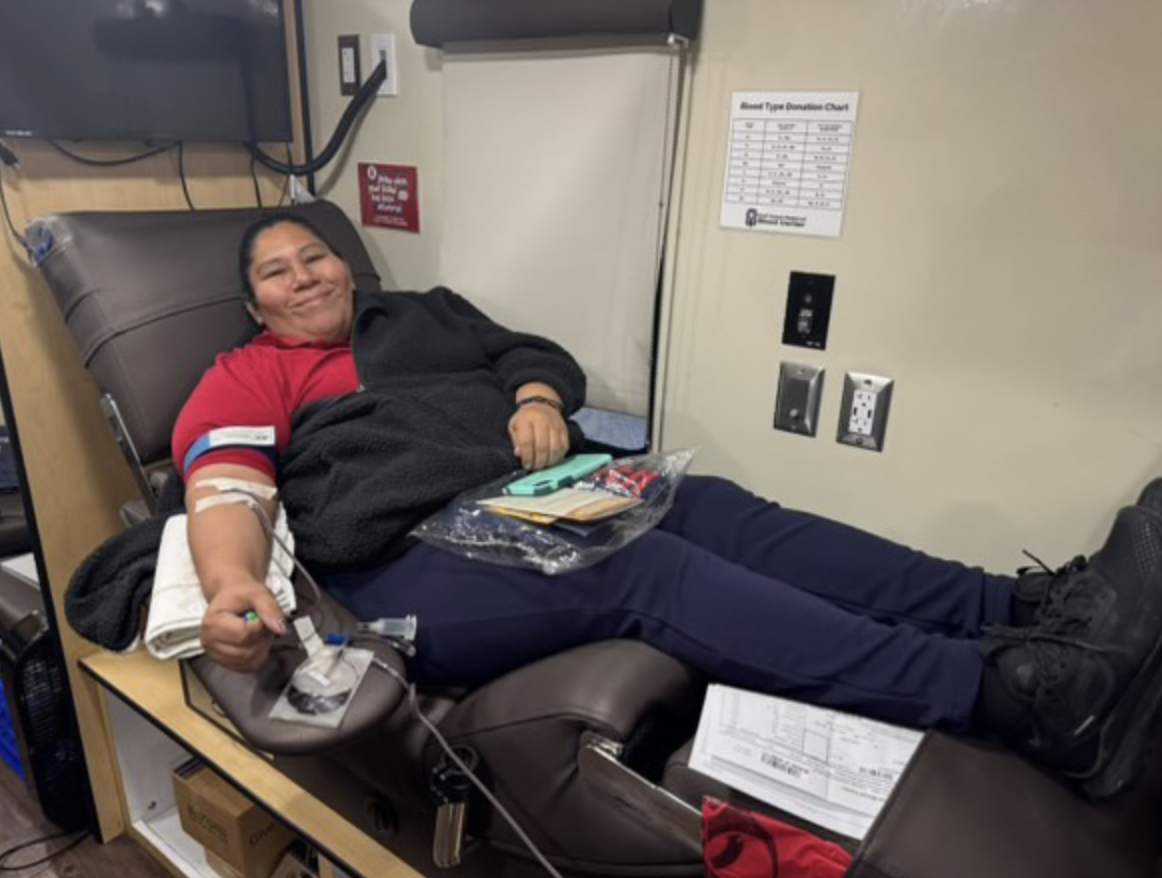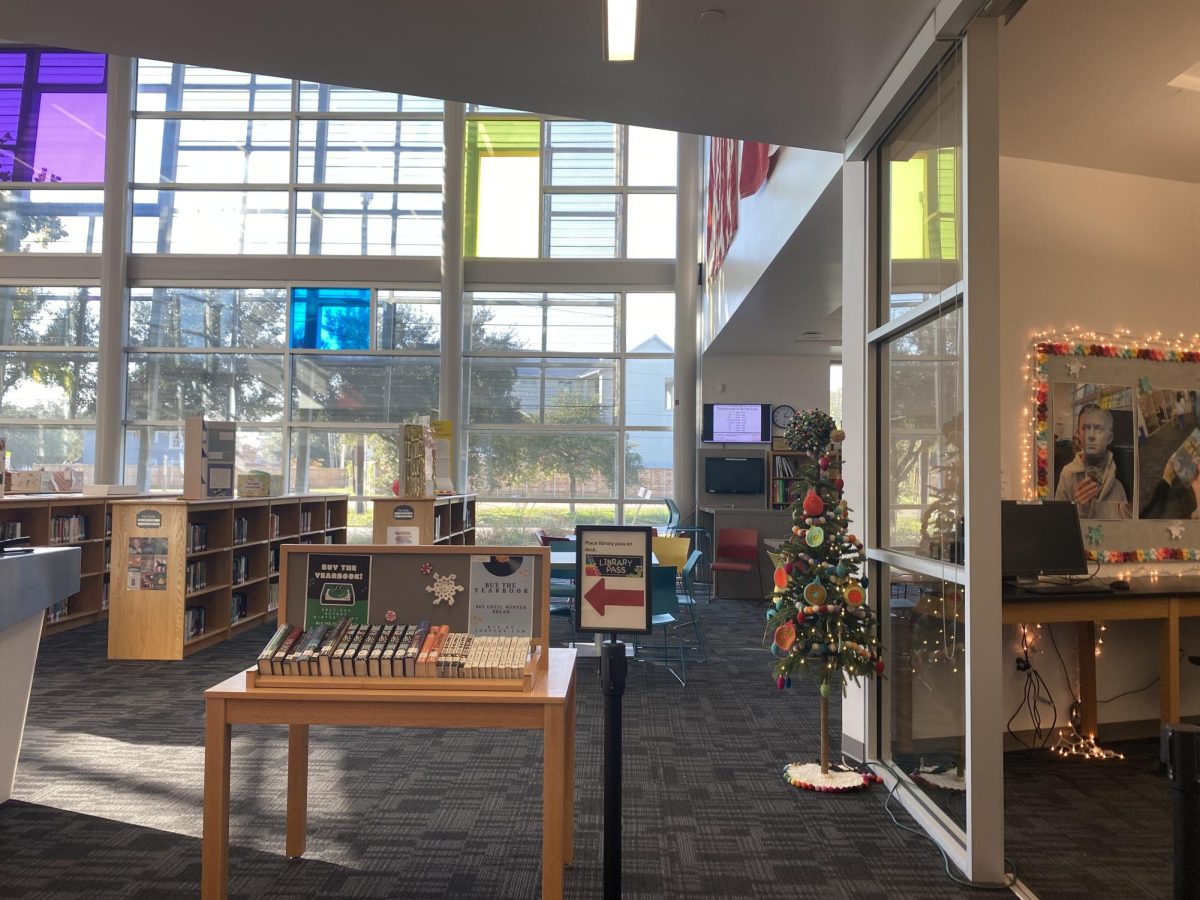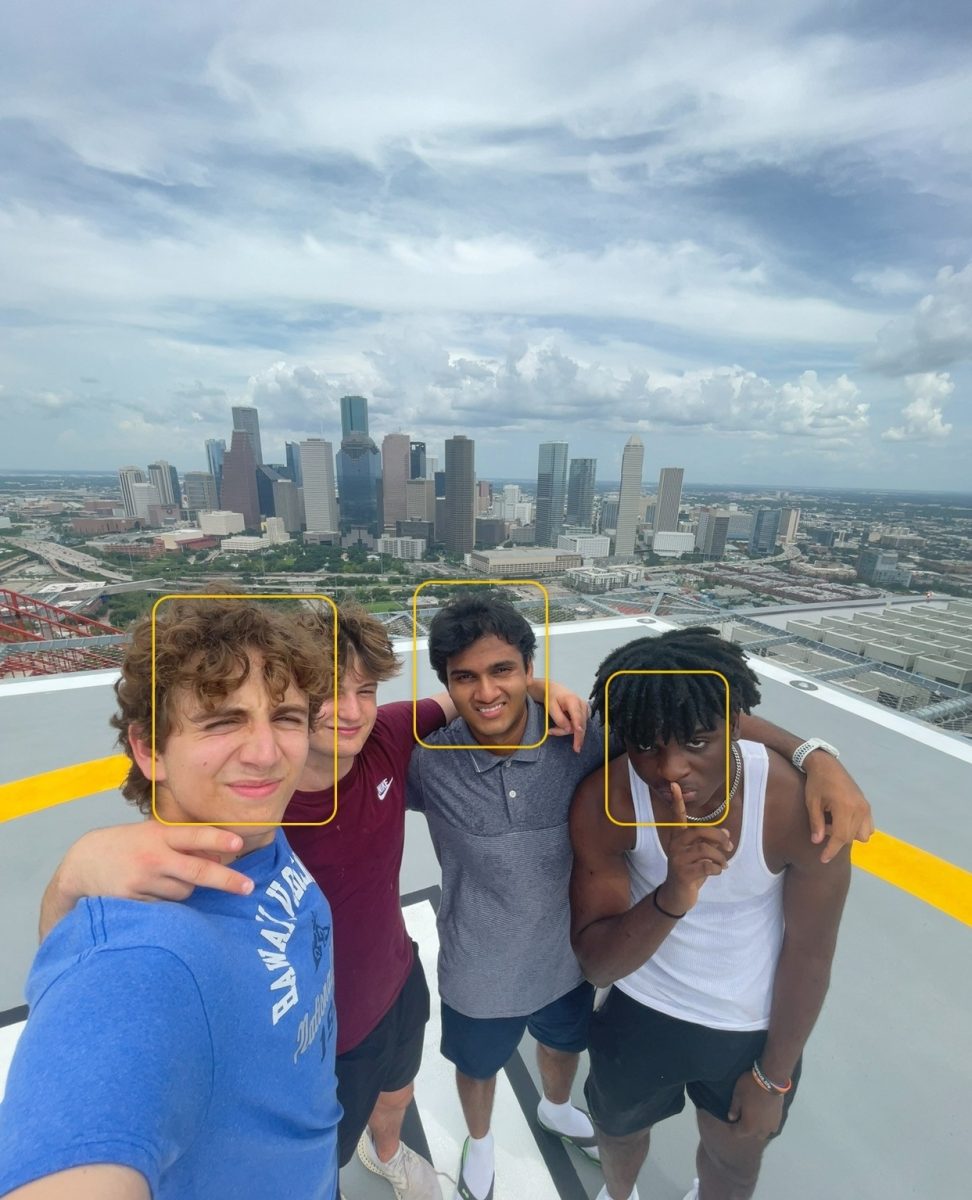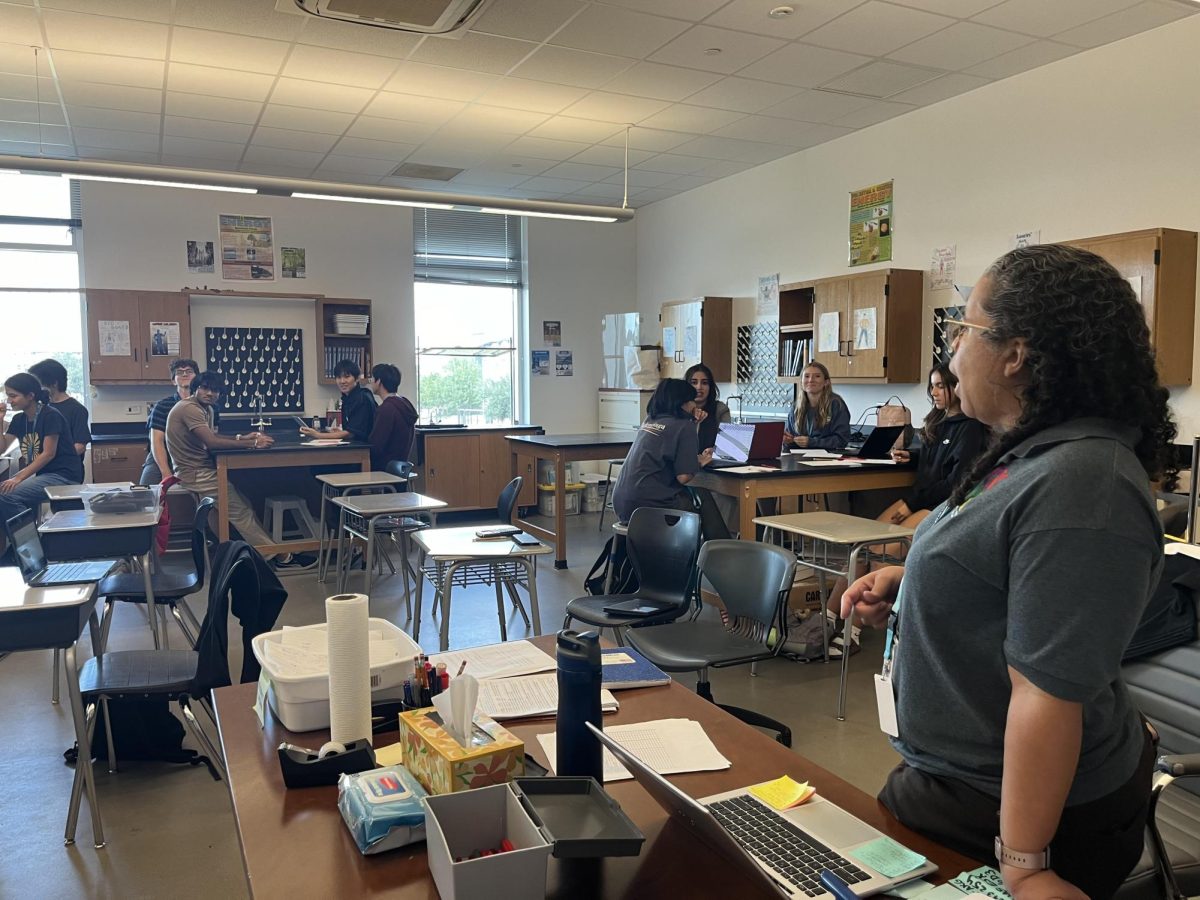On January 20, president-elect Donald Trump signed an executive order allowing Immigration and Custom Enforcement’s (ICE) to raid suspected undocumented immigrants in sensitive locations like schools, hospitals or places of worship.
Schools districts across the nation have emphasized the importance maintaining communication and support with students and families that may have concerns about this order and its potential effects. Many district leaders have pledged to keep their students safe despite the president’s decision to carry out mass deportation across all states. Although being reassured, many families continue to express fear and uncertainty in sending their children to school.
Citizens have utilized social media platforms like TikTok and Instagram to advocate for immigrant families by informing them on their rights and what to do if they are detained or questioned by ICE. Many teachers have posted videos on how they will be supporting their students in the instance of a raid.
Complementing the efforts of social media users, educational platforms have published flyers and pamphlets generating ideas on how schools can keep their students safe. The Intercultural Development Research Association has relayed strategies on how schools should respond if they were to encounter a raid or detainment of a student. The list of strategies ranges from assisting students emotional who have been personally affected by deportation traumas to tactics on how to obstruct the school-to-deportation pipeline.
Mike Miles, HISD’s current superintendent, sent out an email on January 23rd addressing how HISD will manage the new federal law.
“We have also not changed any of our policies related to law enforcement activity on our campuses. School administrators and front office staff are trained in engagement with law enforcement to ensure that student rights and information are protected, and any law enforcement action is managed by HISD Legal Services,” Miles said.
Miles also mentioned the Family Education Rights and Privacy Act (FERPA), which essentially stunts the release of student information or records without lawful permission from their parent or guardian. For students in HISD this acts as another filter of procedure that protects their information and their family’s information from being shared with unauthorized officers.
Student-organized clubs at CVHS have begun to speak out about how to keep students informed on what this order could mean for our community. Clubs like First Gen Alliance or Young Democrats have called this the “Know Your Rights” movement which is meant to inform students on how to act when approached by ICE or law enforcement.
Dr. Charlotte Haney, a CVHS teacher who sponsors several clubs such as the Young Democrats and First Generation Alliance, held the “Know Your Rights” information meeting on January 31.
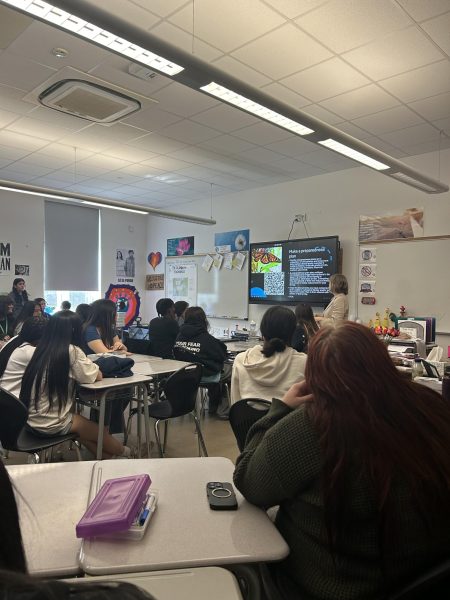
“Good information can really help relieve anxiety. I know that there are families that are afraid but it is important to know that there are resources,” Haney said.
In the meeting, Haney reviewed everything one would need to know from citizen rights to defense tactics if approached by ICE. There is a large part of the presentation that is dedicated to making a plan to keep you and your family safe. It is essential for many students to know the resources and groups that undocumented families should consider joining. Justice for All Immigrants and the Houston Immigration Legal Services Center are two organizations that provide stability and guidance for many low-income immigrants.
In regards to solutions, Haney believes it is important to identify the biggest root causes.
“The first issue is we’re dismissing is a big problem, but the [next issue] is trying to fix it. This isn’t a fixable thing right now, this is something that’s a long project, but we ARE going to fix it,” Haney said.
Haney works alongside with students Mahsa Forghani and Anabel Precht in the Young Democrats club to spread progressive values and help the CVHS students become better informed with the policies around us. Young Dems have had meetings on various politics throughout the year giving students an opportunity to share their voices on issues that are affecting the world around us.
Forghani and Precht have taken time to well inform themselves on Trump’s order, as well as advocate and listen to the students of CVHS who are sharing their own messages. Outside of CVHS, they have listened to the public media in hopes of understanding prospectives on this issue outside of their community.
“I’ve been seeing a lot on social media, people are speaking out about it, encouraging people to speak up and look for support systems. I’ve seen a lot of guides on what to do if you get stopped at a checkpoint or things like that. Specifically in Texas because we deal with that issue a lot and many probably expect to be targeting the state,” Forghani said.
They believe there is this cloud of vitriol thats affecting what everyone is hearing about this policy as there are so many different sources and indicators of information. They noted that students at CVHS tend to be more hesitant or conserved to actually speak about the topic due to its sensitivity and the reality of how much it is effecting our student community.
“I’ve definitely heard multiple teachers make remarks, but I think it’s also very touchy because no one wants to come out fully with what political stances or what candidate they support. It’s kind of interesting to see how this has truly infiltrated the classroom”
In and out of the classroom, Precht believes that lending hand to any student can ease panic in times like these.
“You want to make sure that those undocumented students or people who may be affected feel safe to go to school. You don’t want people to stop coming to school because they feel like they’re going to get targeted. By speaking out, spreading awareness, and supporting, you can really help make a difference,” Precht said.
As teenagers at CVHS, it is essential to use tools to spread support and information. Forghani and Precht agree that social media platforms are our biggest tool.
“Just taking part in reposting important information or interacting with posts that give support and access to resources for these underground students, [is] a really good way of showing solidarity, and probably the easiest way that we can help directly,” Forghani concluded.
In times like this students from all over are being overwhelmed with loads of information, and it is hard to decipher what to listen to and what to believe. Being well informed on the truth is the the first way we change and better the culture here at CVHS.

